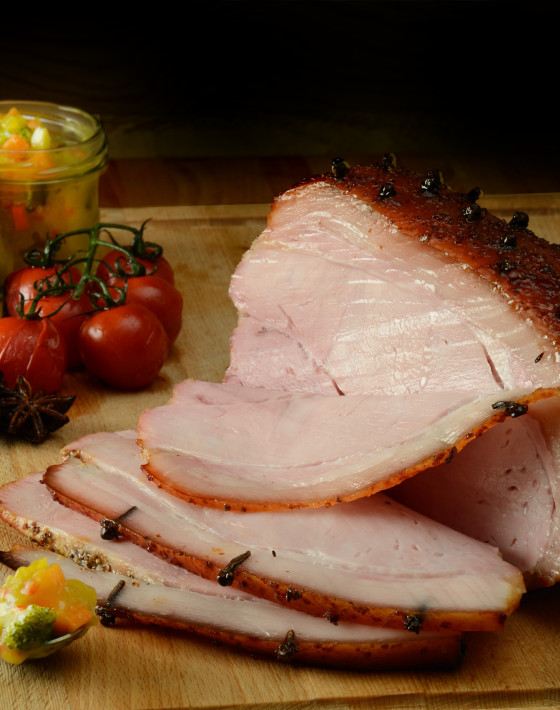Organic Fairtrade Cloves Whole Standard Jar 35g Steenbergs details and description
Steenbergs Organic and Fairtrade whole cloves come direct from forest gardens in Sri Lanka. Since 2005, Steenbergs has been sourcing its Fairtrade cloves from the Small Organic Farmers Association in the Kandy region of Sri Lanka. Use Steenbergs organic Fairtrade cloves to stud hams, to make bread sauce, to make curries or for mulled wine, or they can be used in crafting for their lovely shapes and awesome aroma.
Cloves are reddish brown to brown in colour and are 10-15mm in length (⅓ - ½ inches). They are long and nail shaped, tapered at one end and with a flatter head at the other end, which should contain a friable little ball held between the fingers, hence its name in German being nelke. Steenbergs Organic Fairtrade Cloves have a flavour that is intensely pungent with ideas like medicinal, warming, sweet and numbing coming to mind, while the aroma is also really strong, being pungent, aromatic, camphorous and peppery.
Cloves come from an evergreen tropical tree, Syzygium aromaticum. Cloves are the dried, unopened flower buds from these trees; I am forever amazed by the ingenuity of our predecessors to have worked out that something like this would make a good flavouring. The clove tree is originally a native of the eastern Indonesian islands, called the Moluccas. These trees grow to 10m high (30ft) and have a medium sized, 30cm (12 inches) diameter. Clove leaves are tear shaped, starting out as a bright pink before changing to a dark green leaf. Clove buds begin as clusters of flower buds of 10-15 such buds, which are picked when fully sized and are a pale green, that is ready to turn a pinky colour. These must be picked before they flower.
Clove trees begin to be harvested when they reach somewhere between 6 and 8 years and remain productive until 50, or maybe even 150 years. Clove clusters are hand-picked when the clove buds get to full size, but prior to any of the clove petals fallen off and exposing the stamens. This is a matter of careful timing as - like all things natural - they do not all reach the right stage for harvesting simultaneously, hence the harvesters must pick the best clove clusters as they become ready. The filled baskets are taken to a central collection area, where the flower buds are removed from the flower stems using a motion that twists the cluster against the palm of the hand. The snapped off buds are then air dried on woven mats, letting them dry out in the glorious tropical sunshine for a few days, while the buds become brittle and turn from yellow-green to a deep reddy brown colour. As in most things spicy, it is during the drying process that an enzymatic reaction does all the magical things that make spices so amazing - enzymes create the volitile oil, eugenol, the core flavour in cloves. Having lost about 70% of their weight in the drying process, 1kg (2lb) of dried whole cloves will contain about 15,000 buds. When buying cloves, you should look for clean, well-presented buds. The clove buds should be whole and still contain a really brittle ball in the top of the nail. For more gen about cloves, check out Wikipedia.
The flavour is intensely pungent with ideas like medicinal, warming, sweet and numbing coming to mind, while the aroma is also really strong, being pungent, aromatic, camphorous and peppery. Because of this, it should be used sparingly and some people really don't like it, but I do, and find it really conjures up deep memories about winter, Christmas and apple pies, as well as being warming both psychologically and in flavour profile. Fairtrade cloves are used in many of our blends including Fairtrade mixed spice and organic Fairtrade curry powder and works well in baking through to savoury foods, especially Indian curries. For recipes including cloves, go to the Recipes section and type in cloves, for example General Gordon's Chutney, or perhaps try the Allrecipes website.
Steenbergs Organic Fairtrade Cloves form a core part of the Steenbergs range of over 400 organic spices, peppers, herbs and flavoured sugars. For retail stockists or to chat to us about our organic Fairtrade cloves or other spices or simply to have a general natter about something that's on your mind, just call 01765 640 088 or email enquiries@steenbergs.co.uk.





